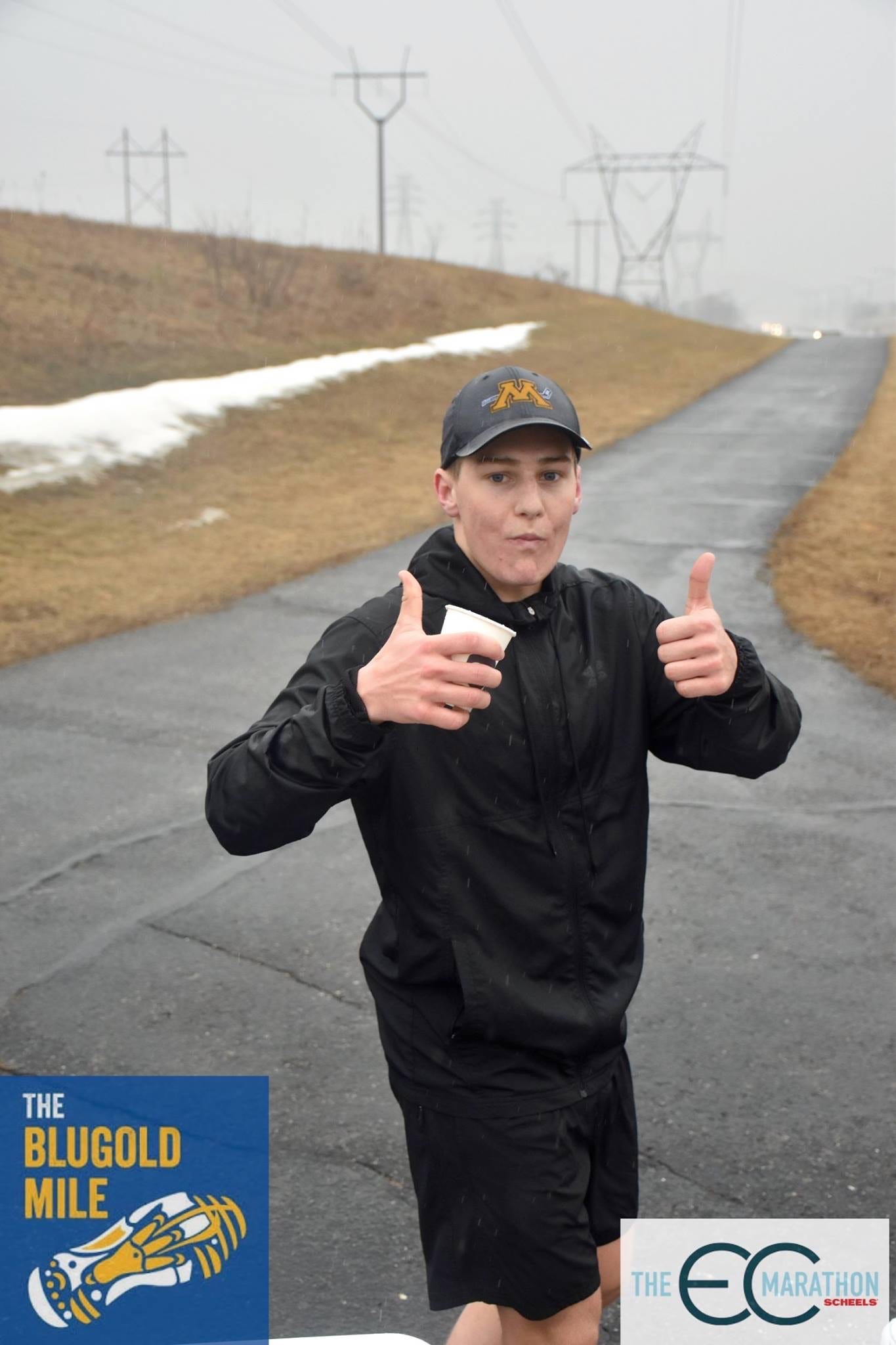“The first mile is a liar.”
A running proverb as old as they come.
And it is so true. The first mile of a run is awkward. Besides the physiological reasons like your heart, lungs, and muscles trying to catch up to your own body, I think the struggle is mental just as much as it is physical. It takes a while for your heart to start pumping hard enough to supply your muscles with the vital oxygen they need to power your run. During this time, it is common to question yourself. No feel-good endorphins are being released. The legs are stiff and have yet to loosen up, limiting your feeling of flow. But then, usually after a mile, the magic happens. Sweat drips down and off your forehead. Your brain quiets down, slowly ending its argument with itself about why you are running instead of watching TV. After reaching this point, the run becomes much easier.
A lot of people hate to run. I hated it my whole life until I got to college and gave it a shot. I met my friend Eddie early on in college, and one day we were hanging out in his dorm room. There was a class at my university called “Distance Running,” where students can get credit to run the Eau Claire full or half marathons. Eddie, having ran a half marathon before, was ready to make the jump to the full marathon. He asked me if I had interest in joining him, and because I was in my say no to nothing stage, I said yes. I had no prior running experience aside from mile jogs in high school.
I went out for my first training run, which was 2.5 miles, and I was absolutely winded by the end of it. Slightly discouraged, I reflected on what I could do to make this training more enjoyable. Over the course of the next few months, as a novice runner progressing to someone who was somewhat discovering some of the “secrets” to running, I began to enjoy the process. Never in a million years would I have expected to like running before starting college. Yet here I was, running around town like a fool, enjoying the hell out of myself.
Here are some things I learned:
Run as slow as you can. It sounds weird, but one mistake a lot of new runners make is they run too fast too soon. You should run at a pace where you could hold a conversation with a running partner without feeling winded. This might feel painfully slow, but you will get faster over time just by doing this and not paying attention to your pace. Short, choppy steps will also decrease the forces transmitted up your legs, so it will be easier on your bones/muscles/joints. The winter is actually a good time to pick up running, because the snow and ice forces you to take smaller strides.
Get some shoes. Running in an old pair of tennis shoes that aren’t made for running is going to make your feet and ankles hurt. Go buy a pair of shoes that fit your feet. Even better, go to a running store and get fit for a specific pair based on your gait, foot shape, and preferences. Most running stores will fit you for free! Also, there is a whole discussion on the barefoot/minimalist running shoe philosophy to be had, but for most people who want to start running, just buy some normal running shoes. A great book on this topic is Born to Run, by Christopher McDougall.
Ease into it. Don’t get off the couch and run 10 miles. Go for a walk and jog for 30 seconds. Then do that again. Then next time run for 2 minutes. Then jog a mile the next time you go out. You want to give your body short bursts of the new stimulus (jogging) so your bones and soft tissue can adapt as you start your new adventure.
Make it social: Running with a friend or in a group can be a great way to enjoy running. You can motivate each other, have someone to talk to, and make running a social activity rather than a solitary one. Joining a running club or signing up for a race can also be a fun way to meet new people and increase your motivation.
Find what motivates you: Listen to some tunes or a podcast. Maybe throw on the Harry Potter audiobooks and get lost roaming around Hogwarts. Some hardos listen to the sounds of their breath and the nature around them. Everybody is different, so find out what gives you a little push.
Take care of your body: You only have one. Luckily, most studies show that running has a protective effect on joints from arthritis and increases bone mineral density (BMD). Still, rest when you need it. I like to take one full day off of physical activity per week to let the body do its thing. Good sleep and nutrition should always be a priority as well.
Explore: Treat your run like you are exploring, and think of your body as a vehicle that can bring you anywhere. It’s pretty cool when you reach the top of a hill, mountain, or do a loop around a lake and you realize you did that with your own two feet.
Celebrate your achievements: Celebrating small milestones, such as running a certain distance for the first time, can help increase your motivation and provide a sense of accomplishment.
Slow down!!!!!!! Seriously, you will run farther, be less injured, and have more fun.


